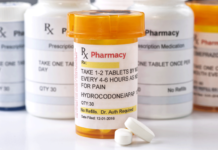Drug addiction treatment is the process of psychotherapeutic or medical treatment for dependence on psychoactive chemicals such as cocaine alcohol prescription medications and illegal street drugs such as heroin or methamphetamine. There are many ways in which treatment can be tailored to suit the specific needs of a patient. The most common treatments for drug addiction include inpatient treatment residential treatment outpatient treatment short-term detoxification and group therapy. The most commonly used drug rehabilitation medication is naltrexone buprenorphine and methadone.
Generally speaking inpatient drug addiction treatment is reserved for those who are unable to meet their own needs due to financial employment personal issues or other reasons. This is typically offered through a drug treatment facility or an inpatient rehab facility. Residential treatment refers to rehabilitation for those with serious addictions but who are not able to afford to attend day treatment programs or require extended stays in rehab. Short-term detoxification programs as the name suggests are designed to reduce withdrawal symptoms associated with detoxification. Group therapy sessions offer patients the opportunity to work with a group of people experiencing similar drug addiction problems. Drug abuse treatment centers may also provide services such as group counseling or individual counseling.
Each substance abuse treatment method has its own set of benefits and drawbacks. Some of these benefits and drawbacks can be found in the various published reviews that are available in the market. However the most important aspect of addiction treatment is that it should be customized to suit the specific needs of an individual patient and help them overcome their addiction. These are usually provided by qualified doctors who have extensive experience in treating drug abusers.











